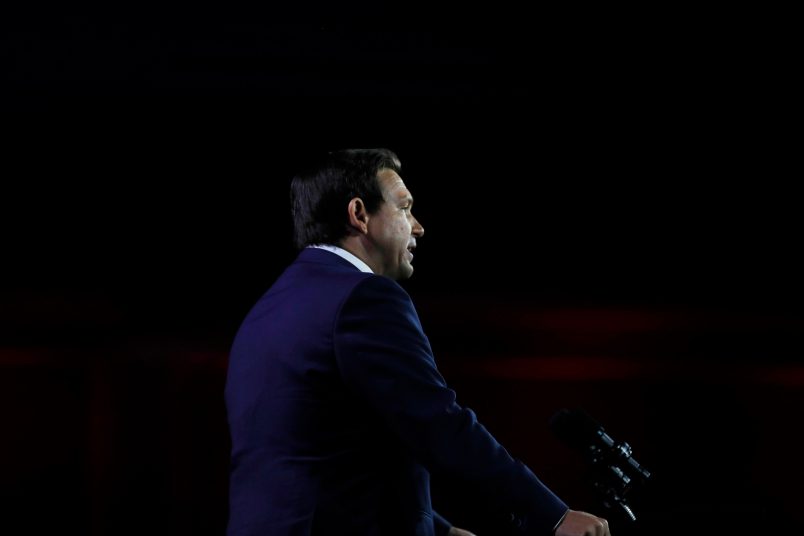While it’s been clear ever since Florida Gov. Ron DeSantis announced the creation of his political-stunt election-crimes task force almost a year ago that the entire endeavor was designed to curry favor with voters who are all-in on election denialism, we’ve been tracking what’s come out of each of the “voter fraud” cases rather closely.
Nearly every single one of the cases tried thus far have gone nowhere, adding to the rather solid hypothesis that the arrests and creation of the task force were all done in service of DeSantis and his 2024 bid — which he hasn’t yet announced.
Today was the sentencing hearing for a man, Nathan Hart, who was accused of voting illegally in Florida in 2020. His case is the only of the 20 people arrested in August, allegedly for voting illegally, to actually make it to trial so far. Three of the cases were dismissed because the Office of the Statewide Prosecutor did not have the authority to prosecute an offense that occurred in only one county. In response, Desantis’ Republican-controlled state legislature just passed a bill that DeSantis signed into law making it easier for that office to net prosecutions. One other case was settled through a plea deal before making it to trial.
As we noted here earlier this month, Hart’s case did make it to trial but ended with a split verdict and a partial acquittal.
Hart was charged with voting illegally and false affirmation. The jury found him guilty of false affirmation, but acquitted him for voting as an unqualified elector. Both charges are third-degree felonies and carry a sentence of up to five years in prison each. Today he was sentenced to two years of probation, according to local reports.
Hart has maintained since his arrest that he didn’t know that he wasn’t allowed to vote, primarily because a person who helped him register to vote told him he could vote legally under Amendment 4, a 2018 ballot initiative approved by voters that amended the state constitution to restore formerly incarcerated people’s right to vote. Hart, who has a previous felony conviction, testified during his trial that he was approached outside of a driver’s license facility in 2020 by a person who told him he was allowed to vote as long as his sentence had been completed. He also testified that the man told him the worst thing that could happen was that he would be told he was unqualified and turned away.
That, of course, is not how things worked out for Hart. He voted and then was arrested along with 19 other formerly incarcerated residents — mostly Black and mostly from south Florida — in August for allegedly voting illegally.
While Hart got off with probation, other, future targets of DeSantis’ election fraud police force may not meet the same fate. Not only did DeSantis sign Republicans’ bill into law that’ll make it easier for the police force to actually prosecute people for voting when they weren’t supposed to, his administration is also seeking to expand the task force. In a recent budget hearing in the state Senate, a DeSantis administration official requested that lawmakers expand the office’s budget from $1.2 million to $3.1 million.
The Best Of TPM Today
Here’s what you should read this evening:
GOP Rep. Ogles Admits He Misrepresented His College Major
Slotkin Announces Bid For Michigan Senate Seat in 2024
Paul Ryan Says He Will Not Attend RNC In 2024 If Trump Is The Nominee
Right-To-Repair Laws And The Rural Pushback Against Corporate Power
In case you missed it this weekend: Alaskan Who Sued To Boot Oath Keeper From Office: We Tried To ‘Not Give Him A Platform For This Kind Of Stuff’
Yesterday’s Most Read Story
The New, New Right Wing Thing: Maybe the Ukraine War is Fake? — Josh Marshall
What We Are Reading
Fox lawsuit docs show Murdoch acknowledged several hosts backed Trump’s fraud claims — The Hill
Election deniers who lost secretary of state races now run several state GOP operations — Minnesota Reformer
Sen. Fetterman remains hospitalized, ‘on path to recovery,’ office says — WaPo


